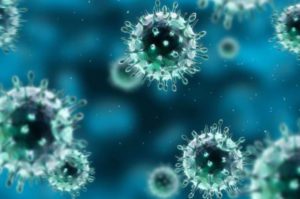
In January and February of 2020, Ukrainian enterprises reduced the import of copper and copper products in value terms by 2.1% compared to the same period in 2019, to $15.338 million.
According to customs statistics, released by the State Customs Service of Ukraine, export of copper and copper products decreased by 15.9%, to $9.814 million in the first two months of 2020.
In February, copper and copper products were imported to the tune of $8.450 million, exported to the tune of $5.895 million.
In addition, Ukraine in January and February of 2020 reduced the import of nickel and nickel products by 11.3% compared to the same month of 2019, to $14.008 million (in February amounted to $6.034 million), but increased the import of aluminum and aluminum products by 13.7%, to $57.714 million ($30.315 million). At the same time, the import of lead and lead products decreased by 60.6%, to $896,000 ($364,000), while tin and tin products grew by 24.5%, to $447,000 ($295,000), zinc and zinc products rose by 4.3%, to $7.562 million ($3.331 million).
In January and February of 2020, exports of aluminum and aluminum products increased by 11.9%, compared to the same period of 2019, to $16.839 million (in February amounted to $9.679 million), lead and lead products increased by 73.7%, to $5.179 million ($2.672 million), nickel and nickel products increased by 18.2%, to $480,000 ($320,000). Zinc exports in January and February of 2020 amounted to $11,000, while in the same period of 2019 amounted to $86,000 (in February amounted to $8,000). The export of tin and tin products in January and February of 2020 amounted to $16,000, while in the same period of 2019 amounted to $15,000 (there was no export in February).

The draft law “On priority decisions related to the prevention, prophylaxis and elimination of the COVID-19 coronavirus, other infectious diseases associated with it, as well as crisis response measures to prevent the spread of the epidemic” provides a clear algorithm for forced isolation and self-isolation, as well as liability for non-compliance with quarantine.
Minister of Health of Ukraine Illia Yemets presented the bill on Friday to MPs and representatives of relevant departments at a meeting of the working group under the Verkhovna Rada Committee on National Health, Medical Assistance and Medical Insurance to draft legislative proposals aimed at preventing the spread of the COVID-19 coronavirus in Ukraine.
The bill also provides for the simplification of the procurement of goods, works and services to prevent and combat coronavirus, which will speed up the process of purchasing personal protective equipment and test systems; the ability to work remotely; a ban on holding mass events with more than 200 people; a ban on conducting state surveillance and control measures during the implementation of measures related to the prevention and control of coronavirus; strengthening control of entry and exit to the territory of Ukraine.
According to the press service of the Ministry of Health, deputies supported the initiative and made several amendments to it.
CORONAVIRUS, COVID-19, INTRODUCING, NON-COMPLIANCE, QUARANTINE

President of Ukraine Volodymyr Zelensky has called on the leaders of Ukrainian enterprises to allow their employees to work remotely.
“I personally ask business executives – if possible, allow your employees to work at home, remotely. Especially those who have children and who cannot leave them because of quarantine at schools and kindergartens,” he said in his video address to Ukrainian people posted on his Facebook page on Friday night.

The Motor (Transport) Insurance Bureau of Ukraine (MTIBU) will introduce new tariffs for Green Card policies for people traveling abroad by car from 00:00 on March 13, 2020. According to a report on the bureau’s website, the MTIBU recalculated the cost of Green Card insurance certificates, which are introduced, up 4.9%
The last tariff change was on December 6, 2019 towards a decrease of 4%.
Green Card policies have been implemented since 2009 in two ways: all of Europe; Belarus, Moldova, and Russia. Also, from January 1, 2016, Ukrainian Green Card policies began to operate in Azerbaijan.
According to the MTIBU, the cost of Green Card policies in Ukraine for 15 days for trips in Europe for cars rises to UAH 678 (formerly UAH 647), for buses to UAH 2,548 (UAH 2,430), for trucks to UAH 1,600 (UAH 1,525).
The cost of the Green Card for one month for cars will be UAH 1,080 (UAH 1,029), buses some UAH 3,539 (UAH 3,375), trucks some UAH 2,123 (UAH 2,025).
The cost of six-month and annual Green Card policies for cars will be UAH 4,793 and UAH 5,934 respectively, for buses UAH 12,389 and UAH 23,000, for trucks UAH 10,053 and UAH 18,974 respectively.
The cost of policies for trips to Azerbaijan, Belarus, Moldova and the Russian Federation for cars for 15 days will be UAH 494, one month some UAH 726, half a year some UAH 1,666 and one year some UAH 2,372.

Metinvest B.V. (the Netherlands), the parent company of Metinvest Group, has completed the acquisition of a stake in PrJSC Dniprovsky Coke and Chemical Plant (formerly Evraz-Dniprodzerzhynsk Coke and Chemical Plant, Dnipropetrovsk region) and currently owns about 73% of the shares of the enterprise.
“In 2014, Metinvest Group sent an application to the Antimonopoly Committee of Ukraine (AMC) for the acquisition of a controlling stake in Dniprodzerzhynsk Coke and Chemical Plant. About a year ago, the AMC approved this deal subject to a number of restrictions. Currently, Metinvest has become the owner of approximately 73% of the shares in the plant,” the company’s press service told Interfax-Ukraine.
As reported, the Antimonopoly Committee of Ukraine allowed Metinvest B.V. to establish control over the plant in connection with plans to commission new coke and chemical facilities at other plants and additional obligations of the group.
Prior to this, Metinvest received a number of permits from the antitrust authorities of other countries to acquire this enterprise, however, the transaction was not officially announced, the transfer of the plant to the group was not confirmed.
According to the National Depository of Ukraine, in the fourth quarter of 2019 Misandaiko Holdings Ltd. and Mastinto Trading Ltd. (both Cyprus) owned 23.6384% of the charter capital each, Metinvest B.V. (the Netherlands) held some 47.28%.
The charter capital of the plant is UAH 170.584 million.